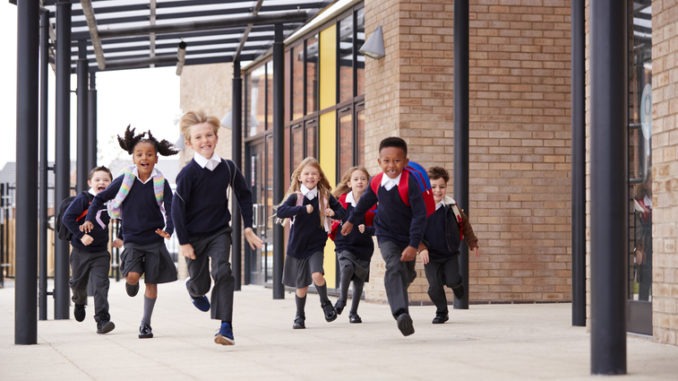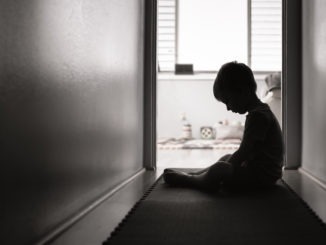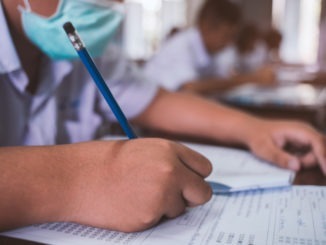
As reported by BBC news, England’s children commissioner Anne Longfield has called for a recovery package to tackle a “rising tide of childhood vulnerability”
She warns of an “inter-generational crisis”, with the impact of the economic fall-out of the pandemic on parents determining the future prospects of their children. The government said the wellbeing of children was central to its response.
Longfield says the nation’s efforts to “build back better” must begin with a focus on children, “sometimes sadly lacking during the pandemic”. Her report, Childhood in the Time of Covid, calls for a “recovery package” to help children, especially the most vulnerable, recover from their experiences of the past six months and the ongoing crisis.
“Even before the crisis struck, there were 2.2 million children in England living in households affected by any of the so-called ‘toxic trio’ of family issues: domestic abuse, parental drug and/or alcohol dependency, and severe parental mental health issues, including nearly 800,000 children living with domestic abuse and 1.6 million living with parents with severe mental health conditions,” it says.
“These numbers are likely to have swelled, fuelled by families locked down in close quarters for weeks and months, and an emerging economic crisis adding pressures on family finances.”
The report says the disruption to children’s education has been sizeable, with schools closed to millions of children for six months, and predicts a widening of the attainment gap between children from disadvantaged or vulnerable backgrounds and their peers.
It warns that millions of children have faced “a cocktail of secondary risks” which means that many have suffered disproportionately as a result of the crisis.
“Some of the most vulnerable children, including children in care, children in custody and children with special educational needs or disabilities (SEND) have seen their rights actively downgraded at a time when protections should have been increased, not weakened.”
The report also warns that, faced with a winter of COVID-related restrictions, followed by a long economic tail – including widespread unemployment of the type not seen since the 1980s – the country faces an “inter-generational crisis, with the impact of the economic fall-out on parents determining the future prospects of their children”.
The commissioner has also published the results of two surveys carried out in March and June about children’s stress levels.
The report, Stress Among Children During the Coronavirus Lockdown, says the proportion of children experiencing stress most days or every day was 24% in March and 22% in June. The children’s commissioner is calling for a range of measures to help children, including:
- that schools are the last to close and first to reopen if there are further lockdowns
- local authorities should ensure respite services for disabled children and their families continue to operate
- the SEND review, promised before the COVID-19 crisis, be progressed as a priority
- legal changes, which have reduced children’s rights and are still currently in operation, should be reversed
- restrictions over individuals from different households meeting should seek to exempt children under 12 to enable them to play together
- schools should target their portion of the £1bn catch-up fund on vulnerable and disadvantaged children who have lost out the most
- greater focus on pastoral care, supported by accelerated implementation of the government’s Green Paper on mental health, so that every child can access counselling in school
- a package of welfare and housing support for families who have built up rent arrears to counter a potential wave of family homelessness
- greater investment in local authority early help services, the troubled families programme and health visitors.
Longfield said: “Children have fewer health risks from Covid-19 and yet they have suffered disproportionately from the nation’s efforts to contain the virus.
“Many of the decisions taken over the last six months have not put children first – while pubs, restaurants and non-essential shops opened, the majority of children were not able to attend school.
“Unless the government acts now, Covid-19 is in danger of becoming an inter-generational crisis, with the impact of the economic fall-out on parents determining the future prospects of their children.
“After all the sacrifices children have made over the last few months, we should repay them with a comprehensive recovery package – ‘a Nightingale moment’ – that puts their interests first.”
The government said: “Supporting children and their wellbeing has been central to our coronavirus response, including getting pupils back to school.
“We have also invested significantly in charities working with vulnerable children and our £1bn COVID catch-up fund will help tackle the impact of lost time in education.”
The Local Government Association said it was vital that “children’s needs are at the heart of future planning to ensure that they are safe, happy and have opportunities to thrive”.




Be the first to comment